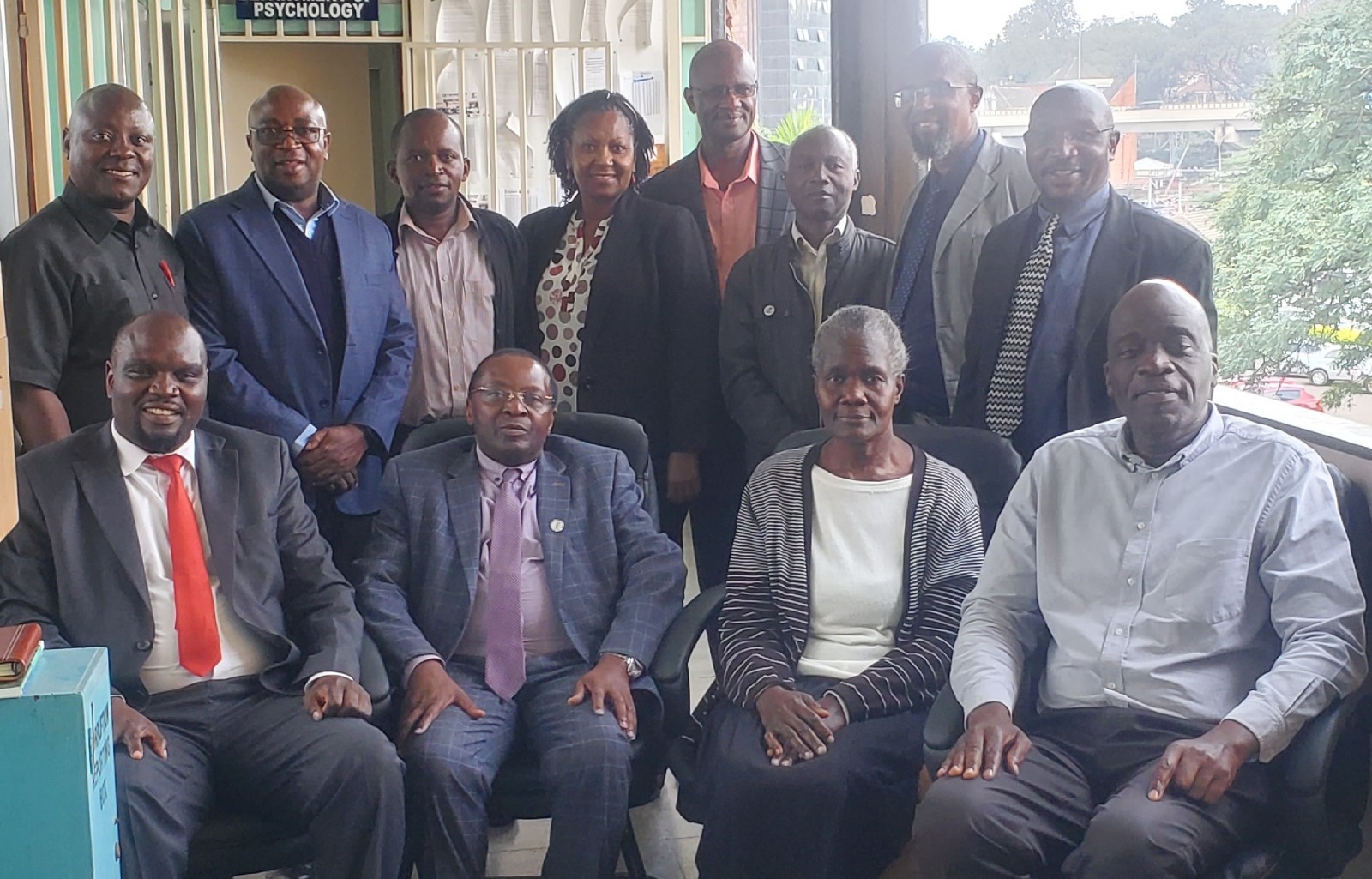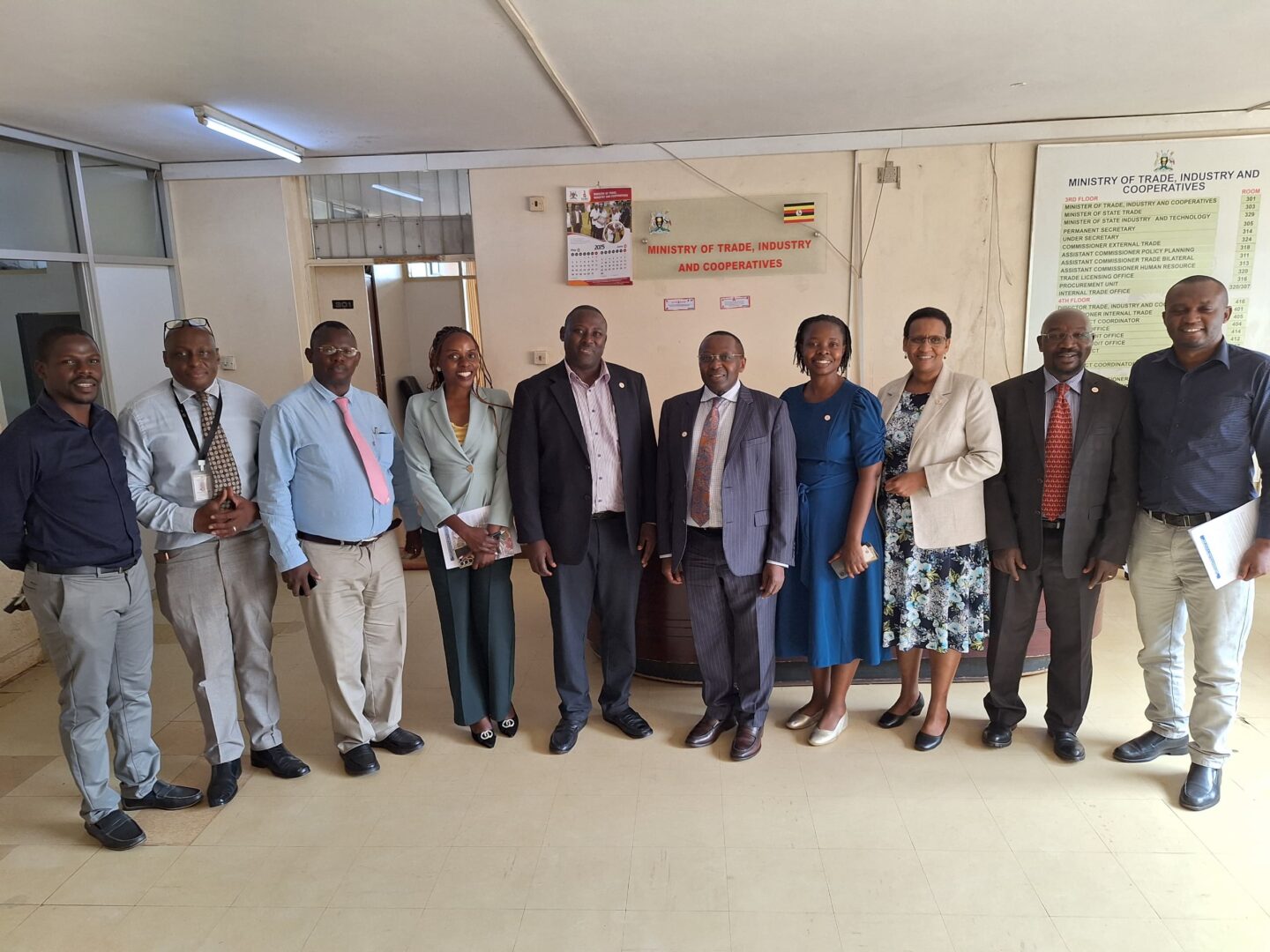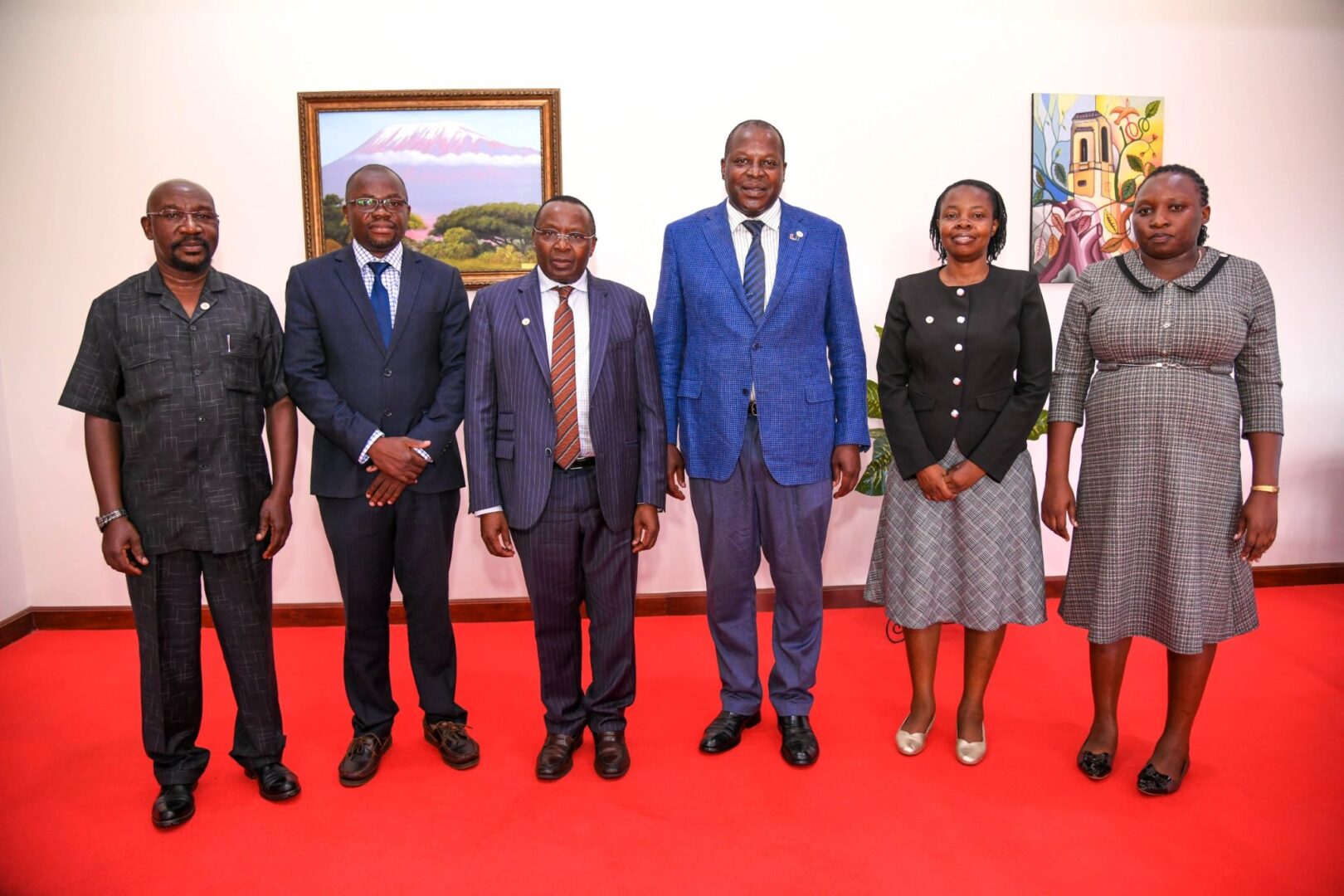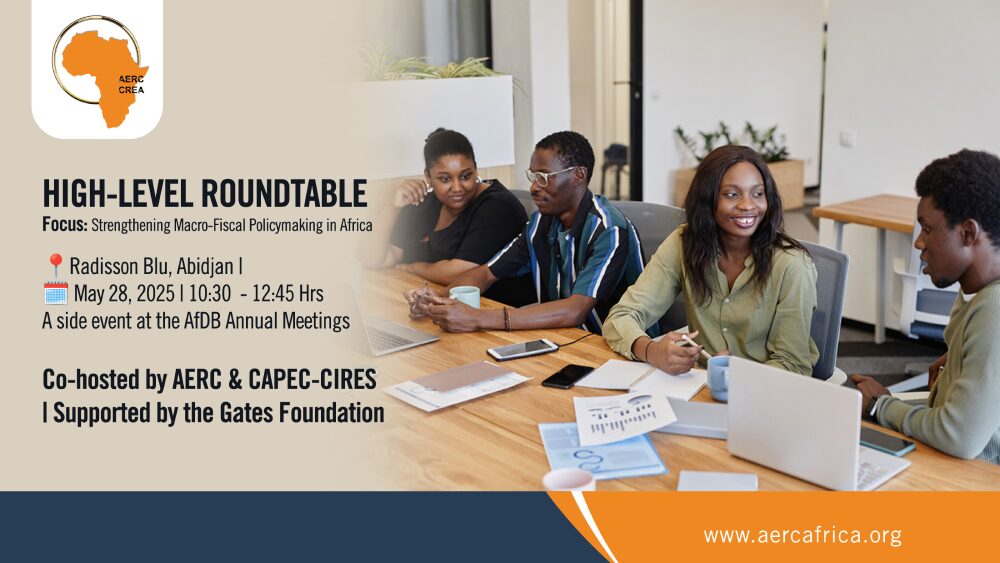

AERC Meets with Economics Department Staff at University of Nairobi
July 15, 2024The African Economic Research Consortium (AERC) was hosted by the University of Nairobi’s Economics Department at the University’s Nairobi Main Campus last week on Wednesday, July 10, 2024. Prof. Victor Murinde, Executive Director, AERC and Dr. Martine Oleche, the Chairman of the Department of Economics and Development Studies at the University of Nairobi led the teams drawn from the two organizations in this crucial meeting.
The discussions covered various issues including ways of exploring possible collaboration on the university’s thematic priorities. Other areas of focus included the department’s outstanding multidisciplinary and multipurpose research capacity in Kenya, in the African region and globally as well leveraging on AERC’s reputation as a leader in policy-oriented economic research in the continent.
Prof. Murinde praised the long cooperation AERC has had with the University of Nairobi’s Economics Department. “ I am delighted to be here to share some developments on the AERC strategic options going forward,” he said adding that ground for AERC’s new 2025-2030 is ripe. He noted that the best institutions now have 10-year plans for a longer-term trajectory and AERC is thinking along similar lines.
He pointed out the successful step change that AERC has made over the years from Collaborative Master’s Programme (CMAP) to Collaborative PhD. Programme (CPP). The CMAP is a programme for direct support of master’s level studies in economics, while the CPP is AERC programme for direct support of doctoral level studies in economics. The AERC supports students from the University of Nairobi in these programmes.
Prof. Murinde observed that AERC will share some information with the University of Nairobi on plans to partner with Mastercard and other institutions over the course of ten years to offer a total of 1000 scholarships in support for PhD academic programmes across Africa. The overarching aim of this program is to foster empowerment among young individuals to evolve into transformative leaders capable of making substantive contributions to both national and regional development endeavors. The scholarships will carter for 70% female students to compensate for their low numbers and AERC will work together with the University of Nairobi on roadshows to promote this progamme.
“This transformative programme will empower individuals from economically disadvantaged communities. By equipping them with essential skills and support, it will enable the scholars to successfully navigate their educational journey and make meaningful contributions to their home countries,” he said.
Prof. Murinde also talked about retooling faculty and researchers to new methods including Artificial Intelligence (AI) and machine learning methods. He added that the world has world has moved on hence the urgency to explore potentials of AI to improve teaching, learning and research in higher education. He emphasized the importance of AI in the evolving classroom landscape.
On formal affiliation to AERC he said that plans are underway to institutionalize this so we can have AERC Affiliate (PhD and Master’s); Associate (Post Doctoral); Fellows (Resource Persons and those holding senior positions); as well as Emeritus Fellows (Retired Resource Persons). All the network members in the various categories will be given an opportunity to identify with AERC in one way or another so they can have a skin in the game.
Dr. Oleche observed that the department of economics and development studies carries out research on high priority areas of social-economic development in Africa and world-wide. He expressed gratitude to the AERC for supporting the department in various ways including scholarships and grants adding that this has strengthened the partnership between the two organizations.
From their perspective emphasized that “AERC must be supported because you cannot have another outfit like it, adding that if you are an economist in Africa and you haven’t engaged or interacted with AERC, then you are not a serious economist”. Dr. Oleche suggested that the two institutions should have frequent meetings to reinforce this partnership.
The Department of Economics and Development Studies, fondly known as DEDS, trains Kenyan and international students in all fields of economics and development studies, thus contributing directly to sustainable human capital accumulation in Africa and beyond. DEDS has emerged as a destination of highly qualified students, young and experienced scholars; and importantly – of practitioners and senior policy makers who want to acquire analytical skills in various branches of economics and development.
The Department is the successor to the former School of Economics (SOE) and Institute of Development Studies (IDS). The two units were merged in 2021 in a university-wide reform of curricula, data, people and governance structures. DEDS is one of the largest departments in the Faculty of Arts and Social Sciences (FASS) at the University. Its core mandates include teaching, learning, research, innovation, consultancy and community service. The DEDS is a longstanding member of the African Economic Research Consortium (AERC) and participates in several of the Consortium’s flagship initiatives, notably, the Collaborative Master’s Programme (CMP) and the Collaborative Ph.D Programme (CPP).






